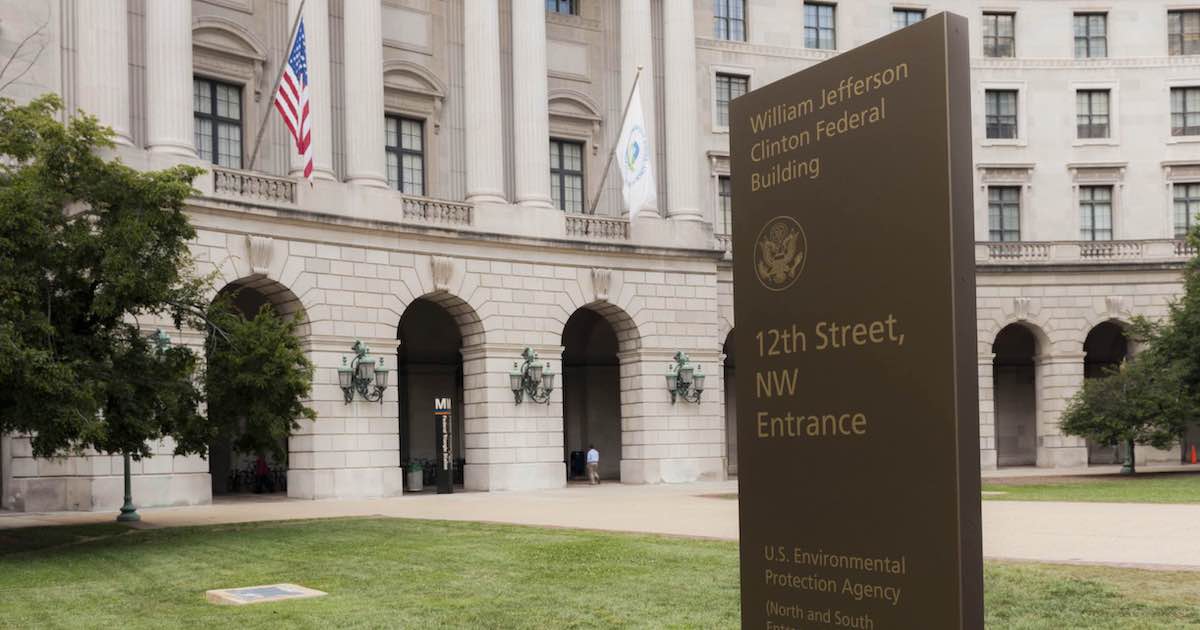
01 Jul 2022 In West Virginia v. EPA, Justices Push Back Against Administrative State
 “The Court’s latest ruling on regulatory policy was a crushing blow to leftist authoritarians and central planners in the United States,” says Project 21 member AK Kamara. “It was a major victory for those of us who value the fact that we are constitutional republic with democratic institutions held accountable to the people.”
“The Court’s latest ruling on regulatory policy was a crushing blow to leftist authoritarians and central planners in the United States,” says Project 21 member AK Kamara. “It was a major victory for those of us who value the fact that we are constitutional republic with democratic institutions held accountable to the people.”
AK is referring to the ruling in West Virginia v. EPA, one of the last cases decided in the U.S. Supreme Court’s 2021-22 term and a major blow to the Biden administration’s regulatory ambitions.
In a 6-3 ruling, the justices determined that the Environmental Protection Agency (EPA) had overstepped its authority by seeking to rework the nation’s energy system on its own by heavily favoring alternative power sources such as wind and solar over reliable legacy sources including coal and natural gas. The Court said such decisions need legislative approval.

“Only Congress can pass legislation. Agencies cannot do so much on their own. In this case, the Supreme Court did the right thing in upholding the law,” noted Project 21 Director of Membership Development Donna Jackson. “Going forward, all federal agencies need to adhere to the statutory authority they have been granted by Congress instead of acting as a self-appointed rogue government operating outside of the law.”
In his majority opinion, Chief Justice John Roberts wrote:
[I]t is not plausible that Congress gave EPA the authority to adopt on its own such a regulatory scheme.… A decision of such magnitude and consequence rests with Congress itself, or an agency acting pursuant to a clear delegation from that representative body.

Commenting on the broader implications of the Court’s decision, Project 21 member Joe Mobley said:
West Virginia v. EPA could be one of the most important cases in America’s history, but not for the reasons many people think. While it may seem like the case hinges on the “climate crisis,” it is really about the just powers and the proper exercise of said powers. This case points to whether or not the nondelegation doctrine will be restored to correct the balance of power within the federal government.
The three branches of government have distinct purposes, each essential to ensuring both the proper functioning of government and the proper checks and balances. If the Congress were to surrender – or delegate – the power to effectively legislate to the executive branch, for instance, our government would cease to function as a representative constitutional republic. Instead, it would operate more like a complicated matrix of interconnected monarchies in which agency leaders craft and enforce their own rules and regulations without concern for the burden placed on the people or the feelings of other branches.
Congress has delegated enormous authority to the executive branch. Think about it. There are endless administrative agencies that cast rules that have the same power and enforcement methodologies as laws.
In her dissent, Justice Elena Kagan emphasized emotion over constitutionality, complaining that the ruling “strips” the EPA’s authority to deal with “the most pressing environmental challenge of our time.”

To this sort of reasoning, AK responded:
The left will predictably melt down and scream that allegedly extremist right-wing justices ruled to doom the world to die from man-made climate change. But the truth is that the question before the Court was not about environmental policy in the slightest.
The question was: Should Congress be able to punt major policy changes to the executive branch’s bureaucratic agencies to implement major policy changes with profound economic impacts? More specifically, should the White House be able to do so when it doesn’t have enough voting power to pass the changes legislatively?
The answer to that question, according to the overwhelming majority, was a resounding “no.” They held that unelected bureaucratic officials cannot implement major policy changes because they are not elected as representatives by the people. The will of the people still matters. Even if the alleged reason for doing so is to “save the world.”

Project 21 member Kathleen Wells, who has been independently involved in regulatory issues, added:
For more than 40 years, the environmentalist movement has been warning that global warming is the result of mankind’s burning of fossil fuels and poses an “existential threat” to human and other biological life. It’s one of the many grandiose lies the Left uses to reshape, if not destroy, Western civilization.
The EPA claims that Clean Air Act regulations will generate $2 trillion in benefits and prevent 230,000 in early deaths; however, this claim is not supported by the actual evidence that the deaths were caused by air pollution — it’s a misuse of ecological epidemiology and bio statistics. And the Clean Air Act claims have been contested for 30 years.
Woodrow Wilson’s desire to put administrative agencies, with their experts and bureaucrats, in charge of policies for America was wrongheaded!
I recently submitted a public comment to the EPA on how their strict regulations have destroyed American small businesses, and especially independent black truckers in Los Angeles, without the necessary scientific data to justify it. It should now be obvious that the greens, and not global warming, pose an existential threat to humanity.



